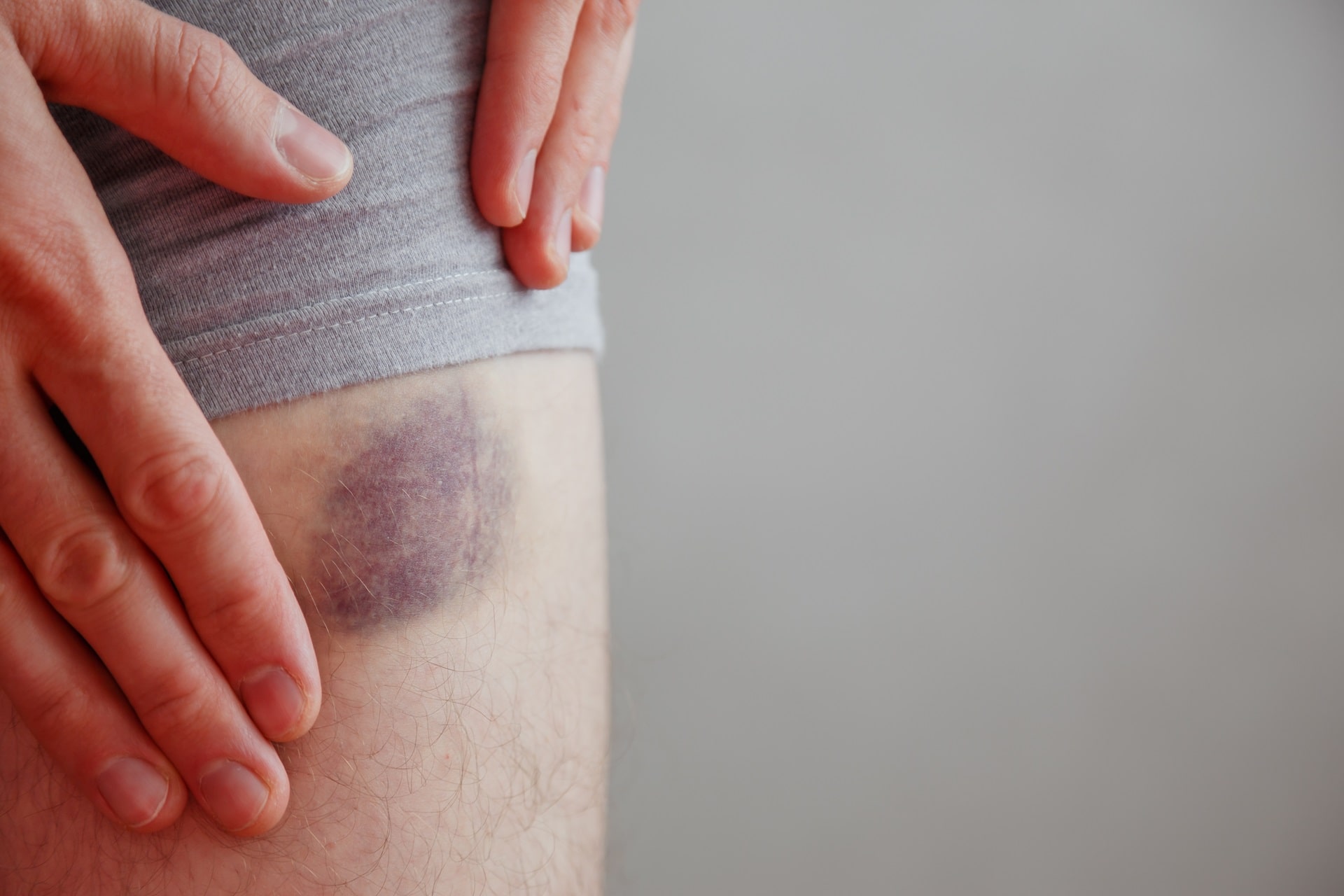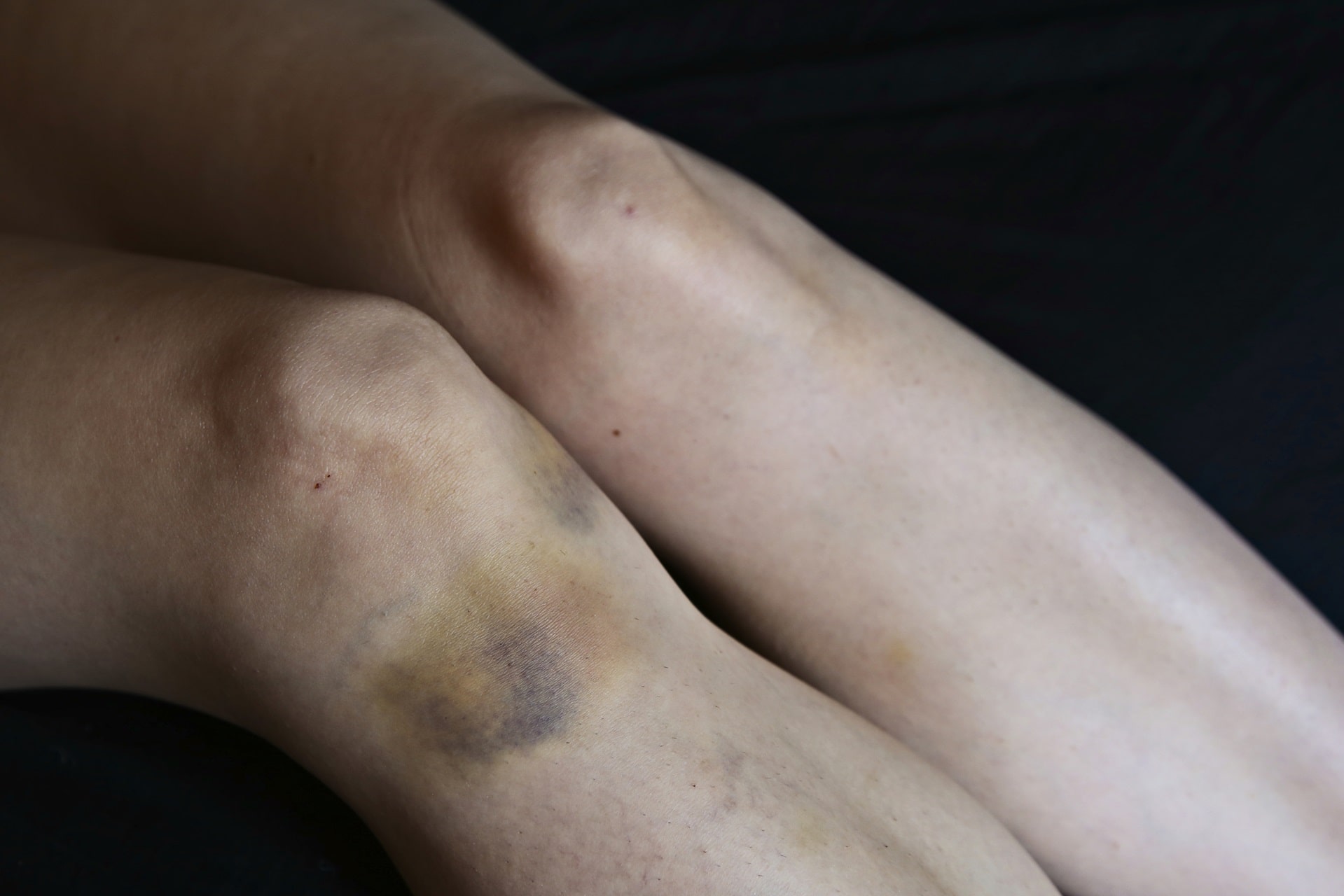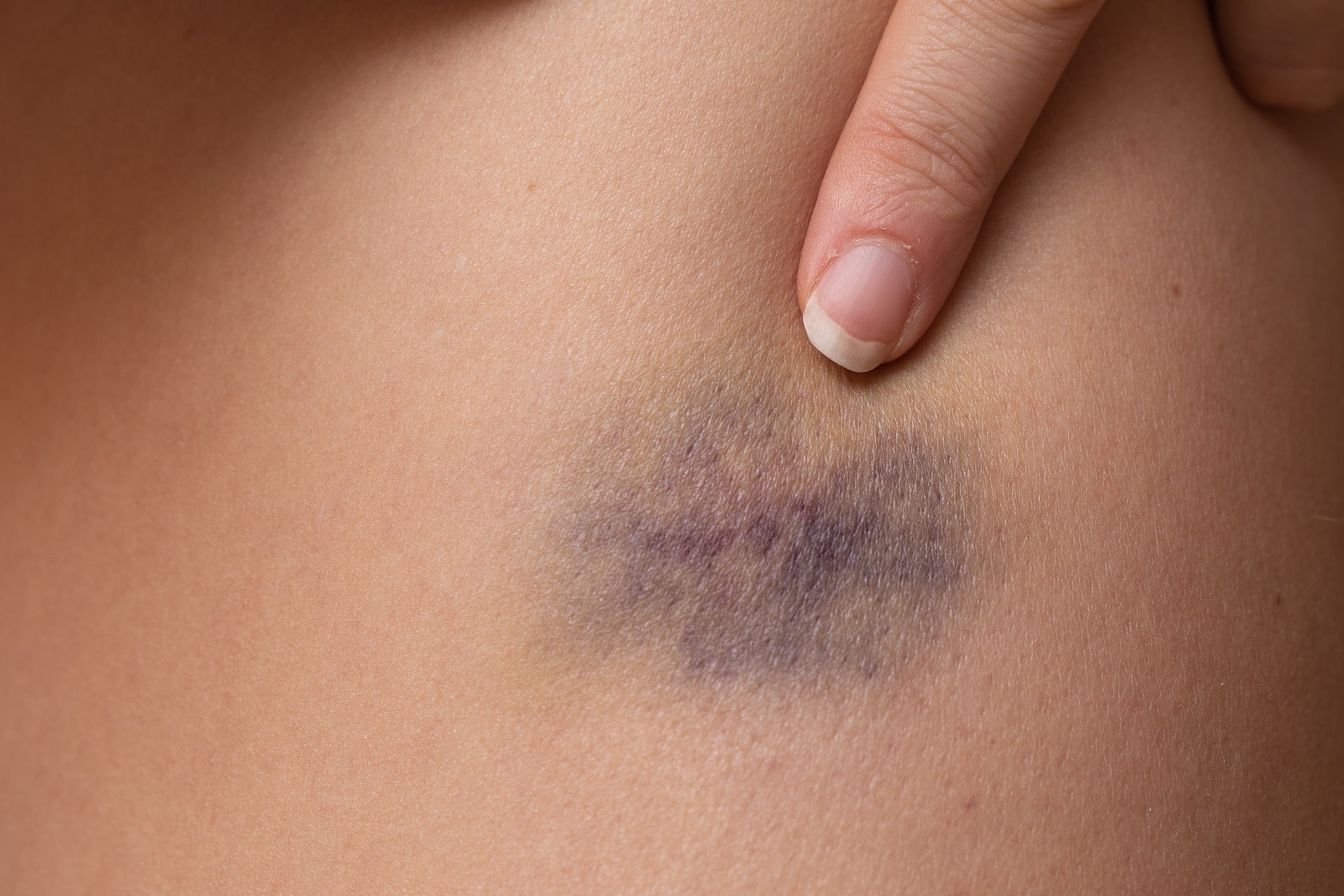You may have experienced bruising on parts of your body for no apparent reason. In this article, we will talk about the possible causes of these bruises.
Bruising on the surface of the skin is something that almost everyone has experienced several times in their lifetime. Bruising that occurs for no reason (such as hitting something, not being exposed to trauma) or bruises that are larger than the effect of trauma can be a harbinger of health problems.
What is bruising on the body?
The purple discoloration of the skin surface, defined as ecchymosis in medical language, can be simply defined as damage to the capillaries under the skin as a result of bumps or blows.

But what is the cause?
In daily life, we may unintentionally or clumsily hit our body somewhere and cause bruising. Visible bruises can occur when blood leaks under the skin from damaged capillaries and this blood settles on the tissues. These bruises can occur in different color tones and sizes.
Depending on the impact received, the blood leaking from the capillaries into the body tissues is insufficient in terms of oxygen, and purple spots are formed first. Over time, these bruises turn brown and finally turn green and disappear after a while. It is observed that bruises heal in maximum 18 days. It may cause pain and soreness when it first occurs. With the first formation of the bruise, the pain and pain felt especially when pressed on it will not be felt over time.
In addition to these, there is a possibility of bruising in the body due to the decrease in the amount of platelets in the blood as well as the impact. Such bruises are usually seen in people who have severe infections or who are hospitalized in intensive care. With advancing age, the tissues supporting the veins weaken. This can lead to bruising from even the mildest bumps.

Bruises on the body should be investigated by doctors, especially if they occur for no reason and if the following symptoms are observed.
- If you think that bruises on the body occur spontaneously,
- If the bruises are recurring and not painful,
- If bruising occurs in more than one place,
- If, in addition to bruising, there is fever, weakness, swollen lymph nodes,
- Gum bleeding, nosebleeds, heavy menstrual bleeding in addition to bruises
- If a minor trauma or impact results in a large bruise
In such cases, you should consult a doctor immediately.
What are the most common causes of bruising?
Bruising on the body is more common in women. This is because women have more fat accumulation under the skin than men.

What are the causes of common bruising in adults?
- Vitamin B12, vitamin C, vitamin K, iron deficiency,
- Disorders of blood clotting,
- Advancing age,
- Excessive alcohol consumption,
- Inadequate and unhealthy diet,
- Diabetes
- Chemotherapy
- Intense exercise









